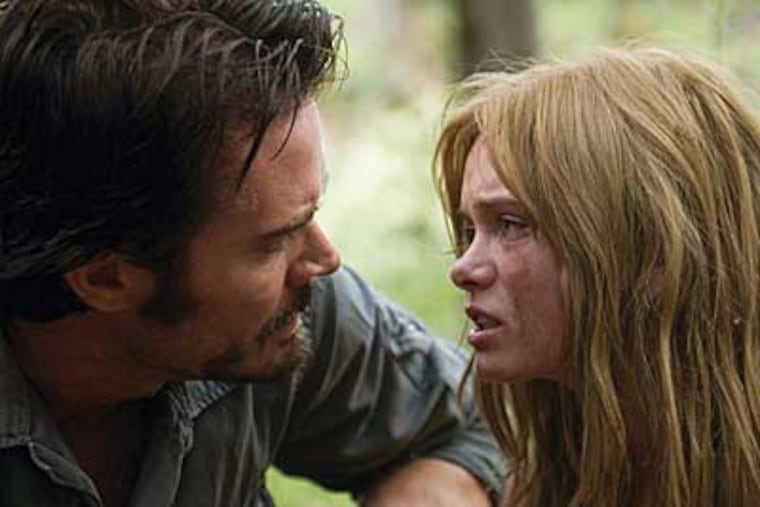A happy-ending 'Last House'
At once an elegiac tragedy about innocence and experience and a vicious yarn about the kidnap, torture, rape, and murder of two girls, Dennis Iliadis' remake of Wes Craven's 1972 directing debut, The Last House on the Left, is the best in the latest crop of slasher remakes. Admittedly, that is faint praise.

At once an elegiac tragedy about innocence and experience and a vicious yarn about the kidnap, torture, rape, and murder of two girls, Dennis Iliadis' remake of Wes Craven's 1972 directing debut, The Last House on the Left, is the best in the latest crop of slasher remakes. Admittedly, that is faint praise.
Iliadis stays true to Craven's story but without aping it. He opens with an idyllic portrait of a yuppie couple and their 17-year-old daughter Mari (Sara Paxton) as they arrive at an isolated lake house.
The plot is well-known: Mari and her pal Paige run into a nice boy named Justin who offers them pot. Things go pear-shaped when Justin's escaped-convict pop Krug, his death-obsessed girlfriend Sadie, and his brother Giles show up. Krug leads the gang as they torture and kill Paige. Then, Sadie holds Mari down as Krug brutally rapes and shoots her. (Sadie's participation in the rape of another woman is repulsive and puzzling.)
As the movie's ads announce, Mari and her assailants end up back in her house, where her outraged parents dispense justice with equal measures righteous indignation, sadism, bloodcurdling gore - and parental love.
In a sharp counterpoint to the utter bleakness of Craven's House - which ends with the death of every major character save one - Iliadis takes care to show us that peace and happiness eventually prevail. Ironically, this makes his film all the more objectionable and nihilistic.
For all its rough edges, Craven's film, which was based on Ingmar Bergman's meditation on violence, religion, and community The Virgin Spring (1960), had a serious message.
Craven self-consciously fashioned his film as a Grimm's fairy tale for the Vietnam era. He made the audience feel complicit in the onscreen violence, then used that mayhem to make us feel outraged at the self-righteous bloodlust that he felt infected America.
In a sublime moment in the original film, the gang watch Mari die in total silence. A pall has descended on them as they recover from their orgiastic violence. It's as if they suddenly realized their pleasure was predicated on the death of another person, as if each one of them suddenly brushed up against the void where once existed their conscience, their humanity.
In an equally jarring moment at the end of the film, Mari's parents suddenly stop from reveling in retaliatory violence as if they realize they have already fallen into the void. By the end of the film, their violence spills out, and they kill a cop who tries to help them. Once unleashed, violence takes on a life of its own and infects everyone in its path.
Iliadis' slick movie gives the parents and the audience a pass: There's no bitter aftertaste or hangover for us as we rejoice in the revenge wrought on the bad guys (and gal). The good guys win - and they save their young.
We are led to believe that Mari's parents are justified. We're sold on the myth that the family - and, by extension, the nation - is righteous by definition and that it has an inviolable right to exact revenge.EndText